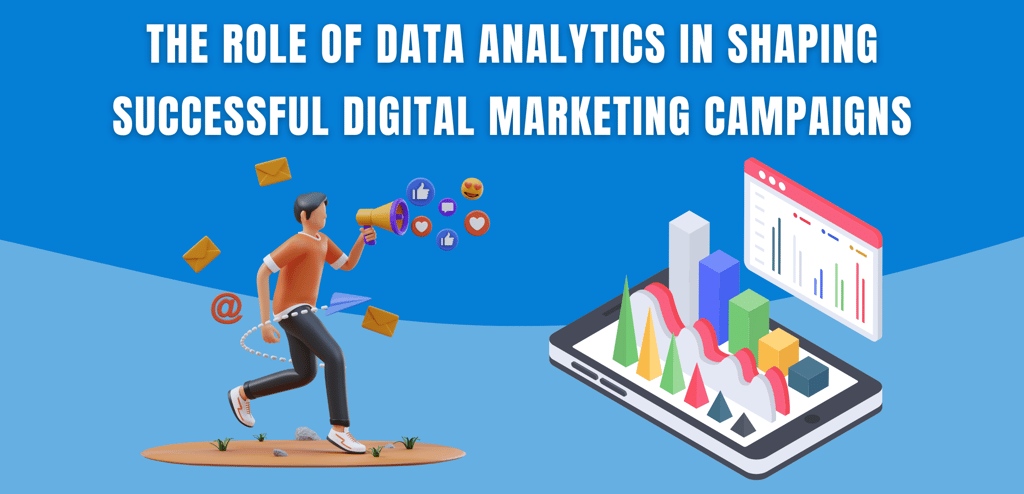
The Role of Data Analytics in Shaping Successful Digital Marketing Campaigns
By AZ Konnect Team
5/24/20242 min read


In the fast-paced world of digital marketing, data analytics has emerged as a powerful tool for driving insights, informing decision-making, and optimizing campaign performance. From tracking website traffic to analyzing customer behavior, data analytics plays a pivotal role in shaping successful digital marketing campaigns. In this blog post, we'll explore the importance of data analytics and how it influences various aspects of digital marketing strategy.
Understanding Data Analytics: Data analytics involves the collection, analysis, interpretation, and visualization of data to uncover meaningful insights and trends. In the context of digital marketing, data analytics encompasses a wide range of activities, including tracking website metrics, monitoring social media engagement, analyzing campaign performance, and understanding customer behavior.
Informing Targeting and Segmentation: Data analytics enables marketers to better understand their target audience and segment them based on demographics, interests, behaviors, and preferences. By analyzing customer data and audience insights, marketers can identify specific segments to target with personalized messaging and offers, resulting in more effective and relevant marketing campaigns.
Optimizing Campaign Performance: Data analytics allows marketers to track and measure the performance of their digital marketing campaigns in real-time. By monitoring key metrics such as click-through rates, conversion rates, cost per acquisition, and return on investment (ROI), marketers can identify areas of improvement and optimize their campaigns for better results. This iterative process of testing, analyzing, and optimizing is essential for maximizing campaign performance and achieving business objectives.
Personalizing Customer Experiences: Data analytics empowers marketers to deliver personalized and tailored experiences to their customers across various touchpoints. By analyzing customer data and behavior, marketers can create targeted messaging, recommend relevant products or content, and deliver personalized offers or promotions. This personalized approach not only enhances the customer experience but also increases engagement and conversion rates.
Predicting Future Trends and Opportunities: Data analytics allows marketers to identify emerging trends, patterns, and opportunities in their industry or market. By analyzing historical data and monitoring market trends, marketers can anticipate changes in consumer behavior, competitive landscape, and market dynamics. This foresight enables marketers to adapt their strategies proactively and capitalize on emerging opportunities before their competitors.
Enhancing Marketing Attribution and ROI: Data analytics provides valuable insights into the customer journey and the effectiveness of marketing channels in driving conversions. By implementing multi-touch attribution models and analyzing conversion paths, marketers can accurately attribute sales and conversions to specific marketing efforts. This attribution data enables marketers to allocate budget more effectively, optimize channel mix, and maximize return on investment (ROI).
Improving Decision-Making and Strategy: Ultimately, data analytics empowers marketers to make data-driven decisions and formulate strategic marketing plans based on empirical evidence and insights. By leveraging data to inform decision-making, marketers can minimize guesswork, mitigate risks, and allocate resources more effectively. This data-driven approach not only enhances marketing performance but also fosters a culture of continuous improvement and innovation within the organization.
In conclusion, data analytics is indispensable in shaping successful digital marketing campaigns. By leveraging data to inform targeting and segmentation, optimize campaign performance, personalize customer experiences, predict future trends, enhance marketing attribution, and improve decision-making, marketers can drive better results and achieve their business objectives more effectively in today's competitive landscape. Embrace the power of data analytics and unlock new opportunities for success in digital marketing.
Subscribe To Our Newsletter


